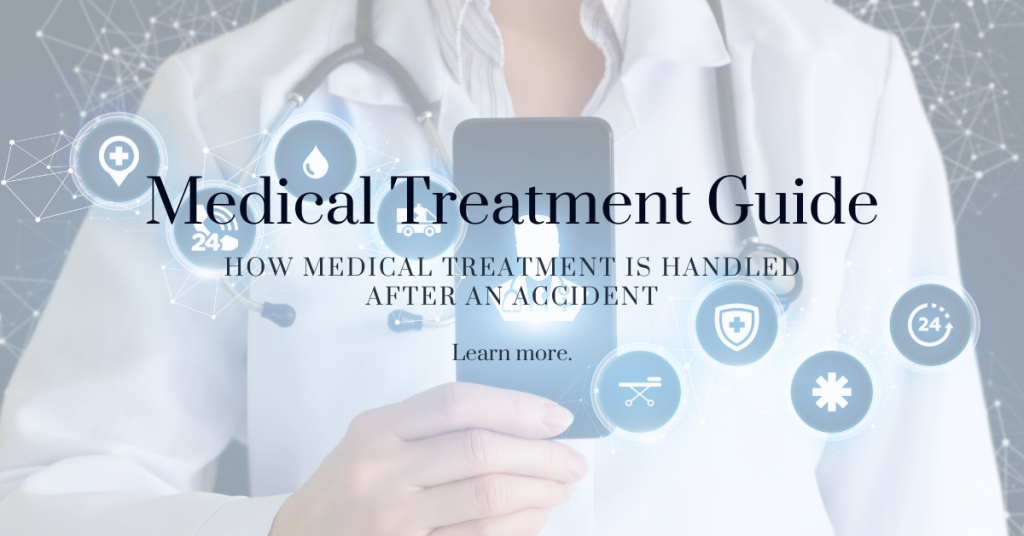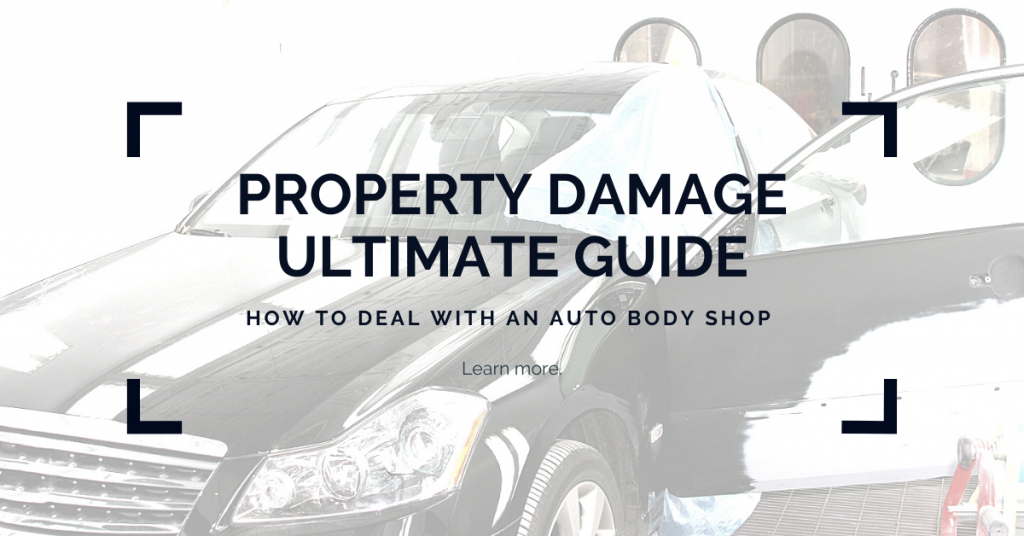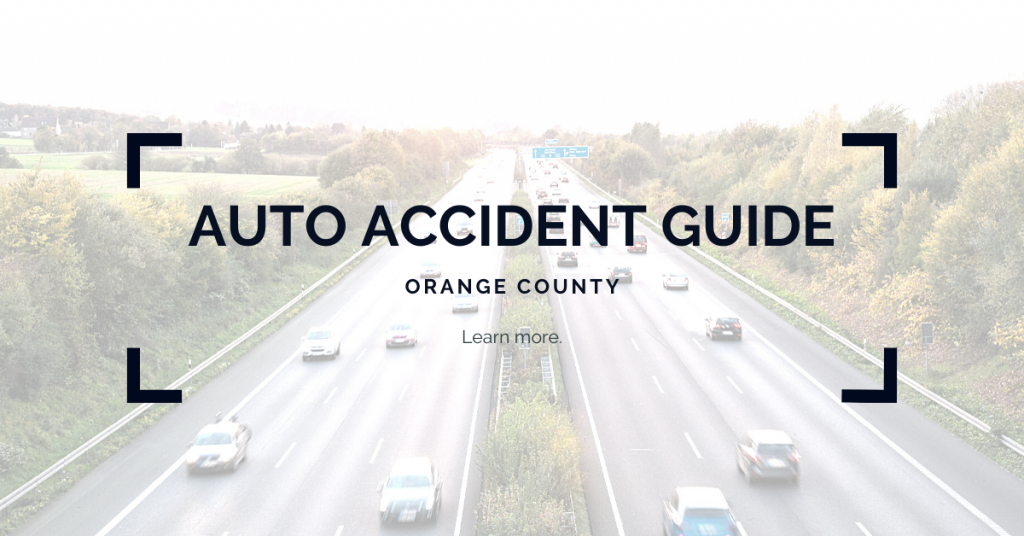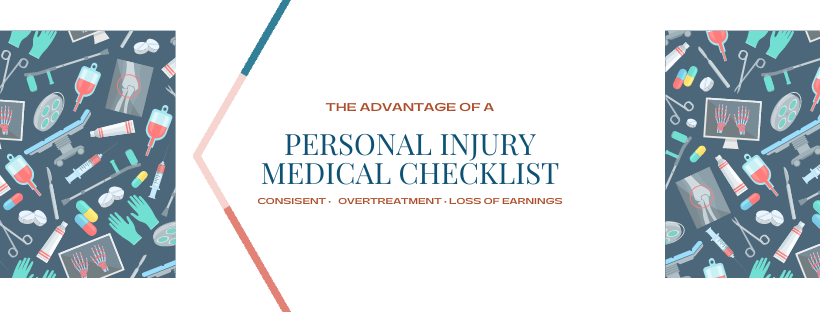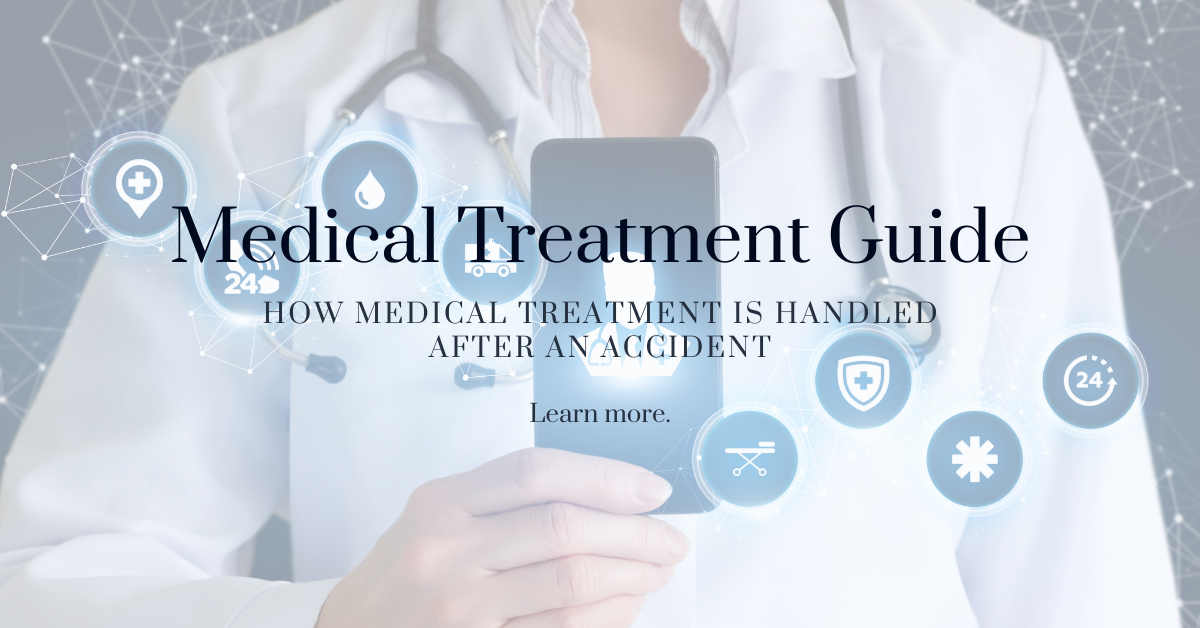The issue of medical treatment is typically foremost in our clients’ minds after having been injured in an accident. In particular, most clients want to know the answer to two major questions:
- What kind of treatment can I expect to get for my injuries?
- How will I be able to pay for it?
We are sensitive to the gravity of both questions. Even with decent insurance, the medical bills for a major accident can be huge, and lots of people don’t have great insurance. As a result, many people feel that they have to make a choice between treating their injuries and not going bankrupt.
Fortunately, this doesn’t have to be the case. Our firm can maximize the quality of your medical treatment while minimizing the costs you have to pay, even if you lack insurance.
We help all our clients receive good medical care, no matter what type of accident they have suffered – a motor vehicle collision, a slip and fall in a store, a dog bite, a defective consumer product, or something else entirely.
Read on, and we’ll explain how treatment after an accident works, and how we can help you.
Medical Liens
What is a lien? Simply put, it is a right to claim assets to satisfy a debt. When someone has a lien on your personal injury settlement, that means they can claim part of it.
This might sound like a bad thing. But in fact, liens, if handled properly, can be the best way for you to expand your treatment options.
Remember, the purpose of a personal injury case is to recover damages; i.e., the costs associated with your accident. The primary component of your damages will usually be medical bills, although you may also recover money for a number of other factors, including property damage, lost wages and future earnings, pain and suffering, and more.
Still, medical bills are usually at the center of a personal injury case. And when we recover damages for you, then they go, not to you, but to the party who provided you with medical care.
After you have received a settlement, your insurance provider will come to claim your medical damages, in a legal process known as subrogation. This is an unavoidable part of the personal injury process, and our job as your attorneys is to fight for your interests during subrogation and negotiate the medical costs as low as possible.
Now, everyone’s health care situation is different. You may have private insurance; you may have public insurance (through Medicare, Medi-Cal, the VA, or some similar program), or you may have no insurance at all; unfortunately, many people do not.
However, any and all of these agencies – private insurance, Medicare or Medi-Cal, and even hospitals – can place liens on your settlement once you have recovered a personal injury settlement.
In other words, liens are part of the equation when it comes to calculating a personal injury settlement. They are baked into the cake, a routine part of a personal injury case.
That said, how can medical liens help you?
Well, it’s very likely that your insurance has limits. Among other things, your coverage might:
• Not provide you with the specialists you need.
• Limit how often you can see a doctor.
• Charge very high copays.
Here’s what we can do for you, as your attorneys: we will help connect you with doctors who are willing to work on a lien basis, with no out-of-pocket costs to you. We can do this even if the doctors are not covered by your health insurance, or even if you have no health insurance at all.
After we have won your case, the doctor’s bills will be paid out of your settlement money, along with all your other medical expenses from the accident.
Remember, it may feel different for the settlement money to go directly to your doctor, but it is no different than if your doctor billed you first and you got the settlement money later. In fact, this method increases your freedom, since you do not have to go into debt.
Furthermore, once your case is settled, we will work with the doctors to negotiate down the medical bills.
In a sense, medical liens operate on the same logic as our firm’s contingency fee agreement. Remember, when you hire us as your attorneys, you pay nothing unless we win your case. Just as the contingency fee agreement allows you to hire a lawyer regardless of your level of wealth, the medical lien system allows you to receive excellent medical treatment without paying out-of-pocket.
Frequently Asked Questions About Medical Liens
Do I have to hire doctors on a lien basis?
Nothing is mandatory. If you hire us as your attorneys, and you are satisfied with the medical benefits offered you by your insurance provider, then we will not force you to seek doctors on a lien basis. That is simply an option we leave open to you, and if you are worried about medical bills, you should know that the option is there.
If you are not sure about your medical treatment, or if you would like to explore other options, then we can help you get a second opinion. You have nothing to lose from hearing another doctor’s point of view, and many clients find that they can get better treatment from a lien-basis doctor than they initially expected.
What are the advantages and disadvantages of hiring doctors on a lien basis?
The main advantages of the medical lien system, as we’ve discussed, are that:
- It increases the options at your disposal.
- You aren’t limited to doctors covered by your insurance.
- You don’t have to pay out-of-pocket for treatment.
There are also a couple of ancillary benefits:
- Doctors who operate on a lien basis are used to working in conjunction with personal injury attorneys. They know how a case works, and they can hel[ provide you the evidence necessary to win your case. Doctors who don’t deal with lawyers regularly might leave important things out of their notes, like that the back pain you suffered was the result of your car accident.
- Because the doctor is not directly working with the insurance companies, there is a level of bureaucracy that is eliminated, and so doctors who operate on a lien basis can often see patients more quickly and more frequently.
There are, however, some disadvantages to doctors working on the lien basis. These include:
- Not every doctor is willing to accept medical liens. While we have a lot of doctors that we work with, accident injuries can be pretty specific, and there is no absolute guarantee that we will have someone who specializes in what you need.
- If you already have a doctor you are familiar with, then switching to a new doctor who works on a lien basis can interrupt the flow of a health care plan. Continuity of care is important, and should be encouraged when possible.
All in all, the right choice for you depends on the specifics of your situation. But whatever choice you make, we will be here to help you.
Are doctors who take liens trustworthy?
In the past, it was difficult to find skilled doctors willing to work on a lien basis. There was good reason for this: since doctors would only be paid if the patient won the case, this added an element of risk that many doctors were not willing to take, particularly if they knew they could make more money elsewhere.
The system has changed in recent decades, as the modern industry around personal injury law has developed. The demand for doctors willing to work on a lien basis has gone up, and so it is a much more lucrative pursuit than it used to be.
It is true that doctors are still taking a risk when they take a client on a lien basis, but when they work hand-in-hand with competent personal injury attorneys, they can be reasonably certain that their investment will pay off.
This means that when you seek a doctor on a lien basis now, you can be reasonably certain that you will have at your fingertips a good selection of high-quality medical professionals.
For our part, we vet doctors very carefully and only send patients to them if we ae confident that they will do a good job.
Finding The Right Doctor After An Accident
In spite of this, however, you may still encounter a bad doctor from time to time.
Sometimes, this is a matter of medical incompetence, but other times, it is a matter of personal preference: the relationship simply doesn’t work, or the doctor’s specialty is not right for your injuries.
If you are concerned about your doctor, then here is what to look for:
Your doctor isn’t responsive to your concerns.
Bedside manner isn’t a perk; it’s a crucial part of being a doctor. It’s true that doctors are busy, but this is no excuse for them not giving you the time you deserve.
After all, patients are the center of their medical practice, and you deserve to be treated as a human being and not an object. Doctors who cannot do this are not doing their job. Simple as that.
Doctors should:
- Be on time to their appointments with you.
- Let you speak without interrupting.
- Be polite and willing to answer your questions.
- Give you enough time during appointments to address your concerns.
- Have staff who are also polite and supportive. (You will likely be interacting with the staff more often than you will with the doctor.)
- Respond to phone calls and messages, either directly or through staff, within 1-2 days of receiving them.
- Keep a clean and orderly office.
Some patients do take things too far, and it is important to keep your expectations fair. But there is a baseline of thoughtfulness and compassion that all doctors must meet if they wish to retain you as a patient.
Your doctor isn’t getting results.
This one should be pretty self-explanatory. Medical treatment can be a long and frustrating process, so patience is crucial. But if you have been seeing a doctor for a long time, and there has been no tangible improvement, then they are not helping you as they should.
And if they repeatedly fail to deliver results, putting you through the same course of treatment again and again, then it is time to move on. This is doubly true if things start to actually get worse.
Your doctor doesn’t want you to get a second opinion.
You have every right to seek a second opinion throughout your medical treatment. In fact, we recommend it! This is an important part of the process, and good doctors will encourage it.
Even the most competent doctors can overlook things, particularly when an issue does not fall within their area of specialty, and having multiple experts review your situation can be extremely helpful for you to get a holistic picture of what may be wrong. Doctors who are hesitant to allow you to see another doctor should not be trusted.
Your doctor doesn’t seem up-to-date on new developments in the medical field.
Medicine as a science is always developing, and new discoveries can be made rapidly (as we’ve seen over the course of the COVID-19 pandemic). Last year’s medicine is not this year’s medicine, and so good doctors don’t just graduate medical school and get on with their careers. They keep going to conferences, reading and publishing medical journal articles, and learning more about new research within their field of specialty.
Unfortunately, many doctors allow their knowledge to slip over time, and it is important to ascertain that your doctor is indeed up-to-date. This can be difficult to gauge, but the best way is to look at your doctor’s CV (academic resume) to see how much additional education, research, and other experience they have accrued in recent years.
How to Maximize Your Medical Damages
Once you have found yourself in a personal injury case, your number one goal is to recover as much in medical damages as you legitimately can. You deserve compensation for all your injuries, not just some of them.
There are a few recommendations we regularly make to clients:
Get medical treatment immediately after an accident. Go to the hospital and get checked by a doctor as soon as possible, preferably the day of the accident. You might not feel like you were badly injured, but some injuries take a while to manifest, and if you wait to get treatment, the other party’s insurance company will use this against you.
Go to all your appointments and follow your doctors’ orders. If your doctor tells you to take a medication, then take it as directed, and if they tell you to undergo an operation, then undergo that operation. Do not allow there to be any gaps in treatment. This is the right choice for both your health and your case: if you don’t get treated fully, then not only will you be worse off, but your settlement will probably be smaller than it could have been.
Keep meticulous medical records. Paperwork is your best friend throughout a personal injury case. Get a record of every appointment and treatment you receive, along with the bills, and keep them organized in a particular file. You should review these records carefully, and if you notice a mistake you should have it corrected.
The Bottom Line
We are not medical experts, but we are legal experts, and our job, as your lawyers, is twofold: to get you to a doctor who can help you, and to negotiate down your medical bills so that you can pocket as much as possible.
To do that, we have carefully cultivated relationships with some of the best medical doctors out there. Our doctors are skilled in handling common accident injuries and willing to take patients on a lien basis. If you hire us, then we will connect you with doctors in our broad network who can address your concerns.
If you were injured in an accident, then call our firm today. Consultations are free and come without any obligation on your part, so you have nothing to lose by talking with us. When you call, we’ll go over your options with you and help you determine whether you have a viable case. If you do, then the process of finding you a good doctor will begin right away.

